The AEJ UK explored the tough choices facing the UK and EU member states in view of Russia’s continued military aggression in Ukraine and U.S. President Donald Trump’s questionable attempts to broker a ceasefire and promised end to the war even as he’s been accused of a “betrayal” of Ukraine.
Examining the issues and answering questions at a lunch meeting on May 23 were London visitor Llewellyn King, longtime Washington journalist and producer and host of White House Chronicle, and online from Bucharest, Romania, Edward Lucas, senior fellow at the Center for European Policy Analysis, columnist for The TImes, and former senior editor at The Economist.
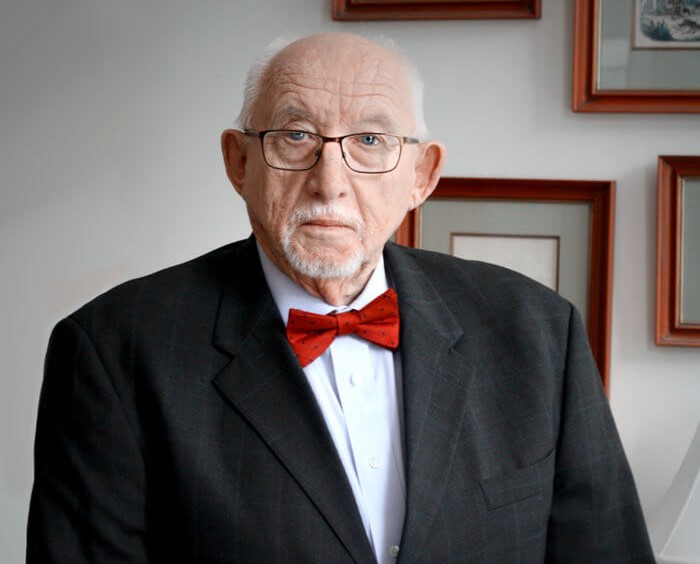

We have this report from AEJ member Quentin Peel, associate fellow at Chatham House and former foreign editor of the Financial Times.
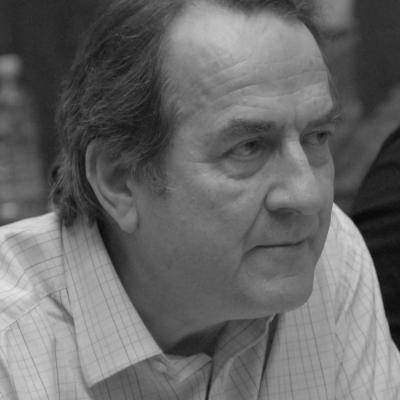
The AEJ lunchtime meeting, on Europe’s tough choices in Ukraine, was never going to be a reassuring occasion. The trans-Atlantic alliance has never seemed so deeply troubled. The meeting coincided with a renewed barrage of Russian drones and missiles on civilian targets across Ukraine, a new threat by Donald Trump to impose 50 per cent trade tariffs on all imports from the European Union, and an ominous silence from Moscow after President Trump’s latest superficial attempts to spirit up a ceasefire in Ukraine.
We had the good fortune to have two wise and experienced guest speakers from Europe and America, and they both agreed on one thing: the relationship between the western allies had deteriorated dramatically since the return of Trump to the White House, and the situation was likely to get worse before it got better. Ukraine would be a vital test of the resilience of the NATO military alliance. Europe had long failed to heed the warning signs from Russia’s serial acts of aggression that it must take much more responsibility for its own defence, and for keeping the peace in its own neighbourhood.
Edward Lucas, senior fellow with the Center for European Policy Analysis and former senior editor and correspondent for the Economist, spoke online from Bucharest. He promised to try to be optimistic in spite of the prevailing gloom – but his conclusion was stark: that Europe’s collective insouciance had left it dangerously weak faced with a warlike and implacable Russia.
“Donald Trump has turned the trans-Atlantic relationship on its head,” he said. “He wants to be friends with Vladimir Putin. We are in a bad mess.” Lucas saw no realistic prospect of a ceasefire in Ukraine in the foreseeable future, and Trump had made clear he was ready to “walk away” from trying to bring peace to Ukraine if it proved too hard.
Looking at the prospects for Ukraine to survive the ongoing onslaught and Russia’s daily bombardment of its towns and cities, Lucas summed up the chances like this: “If it settles down into a long war of attrition, then Russia wins” because of its deeper reserves of manpower and resources. But if the U.S. does provide the air defence, heavy lift and intelligence that Ukraine needs, and Europe moves quickly to fill the gap left by the U.S. in terms of supplies of weapons for Ukraine to keep up the fight for its own territory, then, he said “Ukraine wins”.
Llewellyn King, veteran host of the PBS television programme White House Chronicle, said that President Trump seemed “incredibly indifferent” to the plight of Ukraine, and was happy to alienate NATO allies with his threatened trade tariffs and accusations of freeloading. He has warned that European security is no longer a U.S. priority. His treatment of Canada (calling it a 51st state) and Greenland (threatening annexation) had appalled the NATO partners.
“Ukraine has become a huge embarrassment to people (in the U.S.) who understand its significance, and the vulnerability of Europe (to Russian aggression),” King said..
He said Trump was both “vengeful and capricious,” and he wanted to be liked – particularly by Vladimir Putin.
Lucas said he feared that Trump would endorse a peace deal in Ukraine very close to Putin’s demands, recognising Russia’s control of the Ukrainian territory it had seized, including Crimea and much of the Donbas, and blocking any future NATO membership. That would be rejected by Kyiv as unacceptable.
If the European allies backed Ukraine, Trump would punish them by starting to withdraw U.S. assets from NATO, closing bases, pulling out significant numbers of troops from the 80,000 currently on rotation on the European continent, and refusing to replace SACEUR, the American supreme commander of NATO forces. “Then we will see that Europe is defenceless without the Americans.” Europe relied on the U.S. overwhelmingly for command and control, heavy lift capacity, missile defence, satellite intelligence and data processing, all essential to an effective military alliance.
If an orderly U.S. withdrawal were agreed, he said, it would probably take the Europeans up to 10 years to replace the U.S. contribution. But there might well not be time for that. “I fear we are not facing an orderly departure, but a disorderly one.”
“A fundamental weakness at the heart of the Atlantic alliance has been exposed,” he said. “We had 25 years to get our act together, and failed.”
The NATO allies are now being asked to consider an increase in defence spending from 2 per cent to 3.5 or even 5 per cent of GDP. At the same time, the European Union has agreed to a Euro 800bn plan to “Re-Arm Europe” by combining EU budget and EU borrowing resources.
Lucas doubted that would be coherent, because the European Union had no command structure, and no military operational experience or capacity. Both the EU and NATO also face a potential veto from Hungary’s Victor Orban, who has consistently opposed overt support for Ukraine. Only a “coalition of the willing”, as proposed by Sir Keir Starmer, the UK prime minister, would be able to co-ordinate such support outside the EU and NATO structures.
But the problem is not just in Europe. King agreed with Lucas that the problem in the U.S. was that the Trump administration had decapitated the major institutions of the state, including the National Security Council and the State Department. They were either “cowed or eroded”, he said. “(Trump) has found extraordinary ways of punishing anyone who stands up to him.”
Since he began his second term in office, Trump had acted “with a disregard for all traditional norms of behaviour.” He had “all the delusions of a traditional monarch.” The opposition Democrats had had very little impact, and Republicans in Congress had been “pusillanimous” in the face of a blizzard of executive orders, many blatantly illegal. Only two members of the Supreme Court were prepared to stand up to the president.
He liked to spread fear amongst potential adversaries and critics. “Something is happening in the US I have never seen before,” he said. “People have fear. People are scared of Trump.” That applied to the business community where companies were fearful of losing government contracts if they criticised Trump’s actions – and erratic behaviour. “Trump has the attention span of a gnat,” he said. “He tends to listen to the last person he talked to. He gets ideas, and then changes his mind.”
As for the whole process of tariff wars started by the president on “Liberation Day” on April 2nd, “he is probably going to have to repeal a lot of them. I think we will end up with 10 per cent on everything. But the whole world trading system has been set back by his erratic approach.
“You can’t reason with Trump. He got this adulation from television (his appearances as host on ‘The Apprentice’). He loves performing”. King said the make-believe world of Trump’s America reminded him of the Peter Sellers’ movie Being There, in which a U.S. president brings chaos to the USA by trusting in the homespun nonsense from the mouth of a simpleton whom he imagines to be smarter than all his expert advisers.
Llewellyn King and Edward Lucas at the AEJ UK 23 May 2025
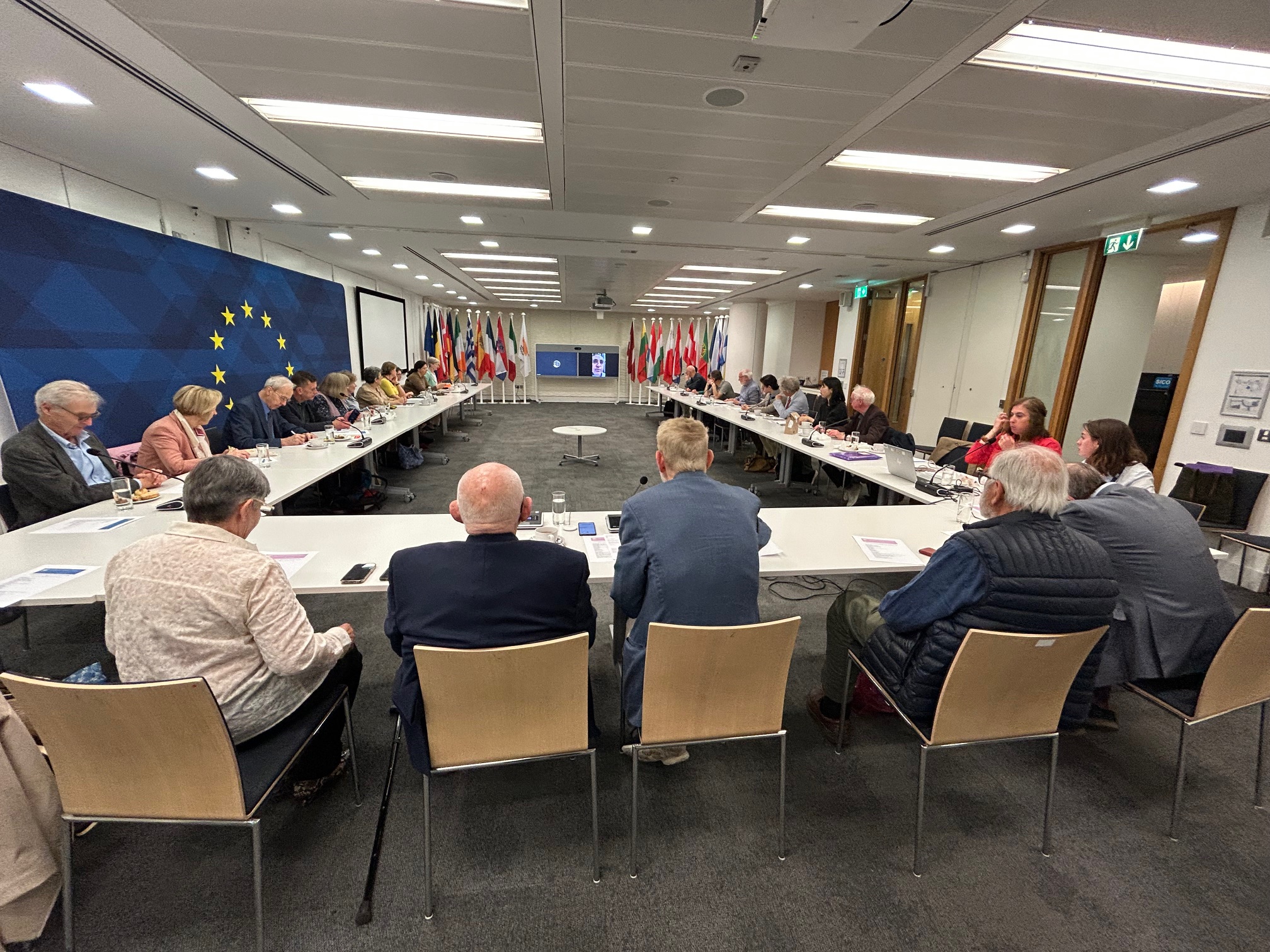
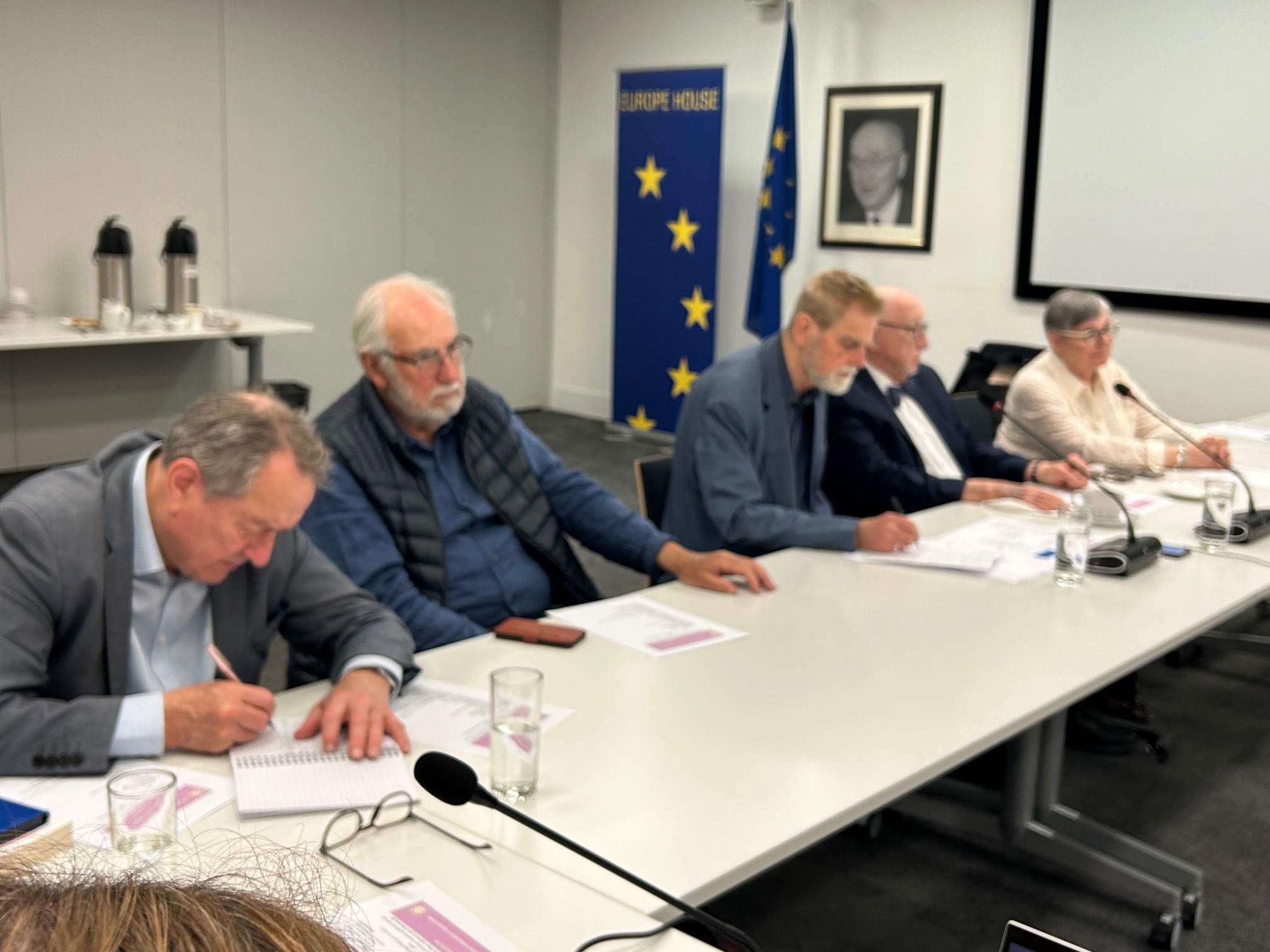
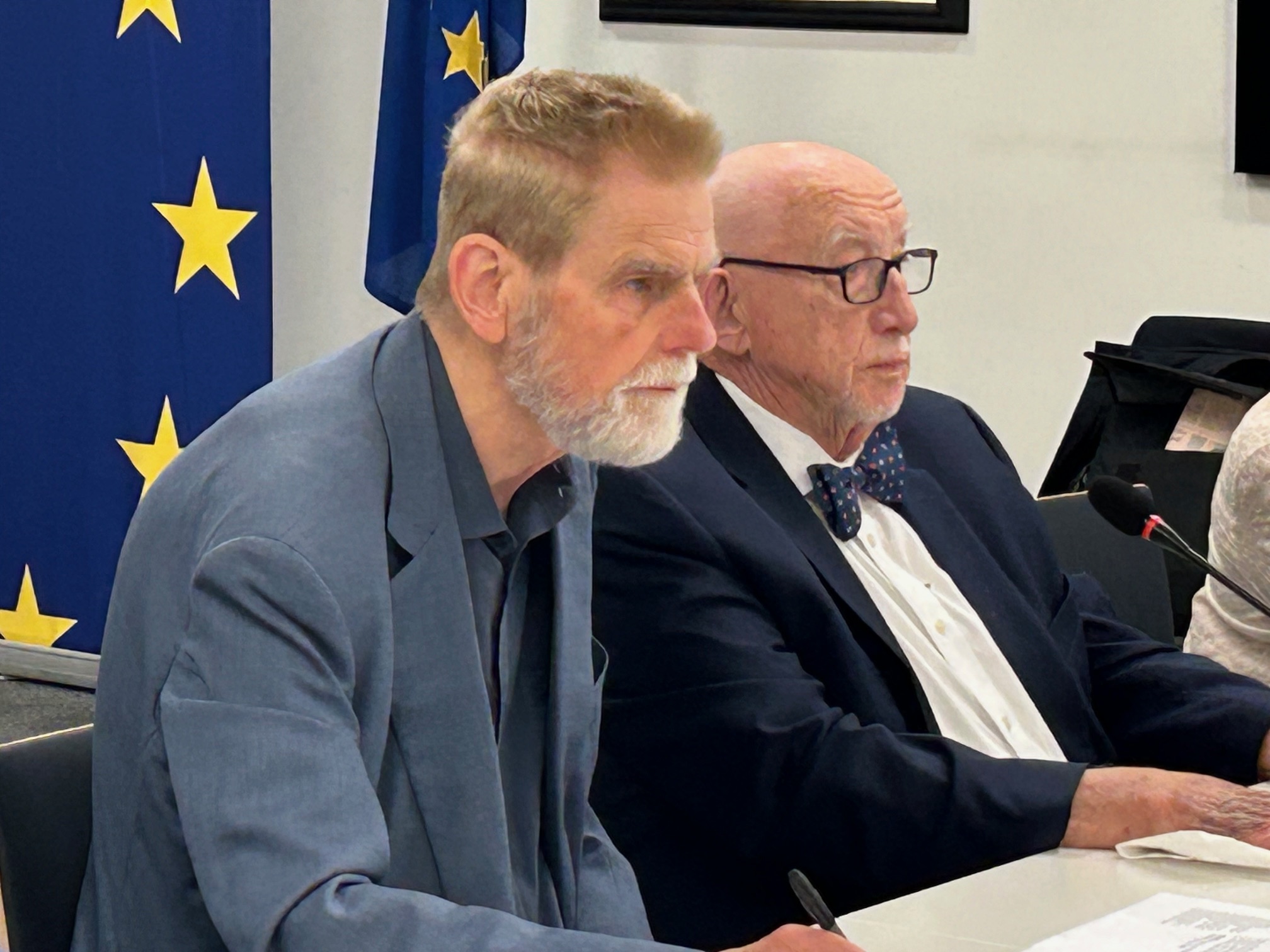
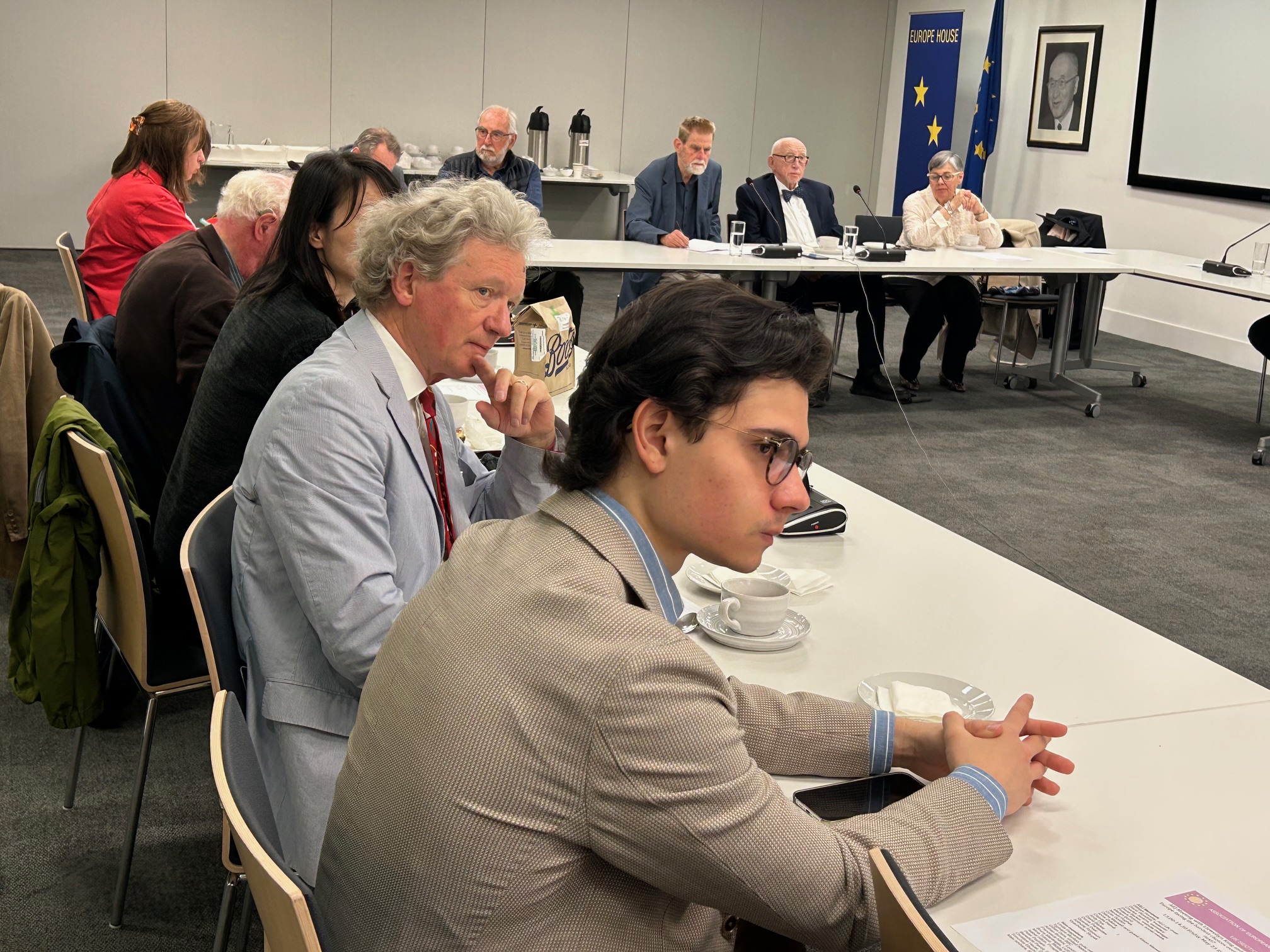

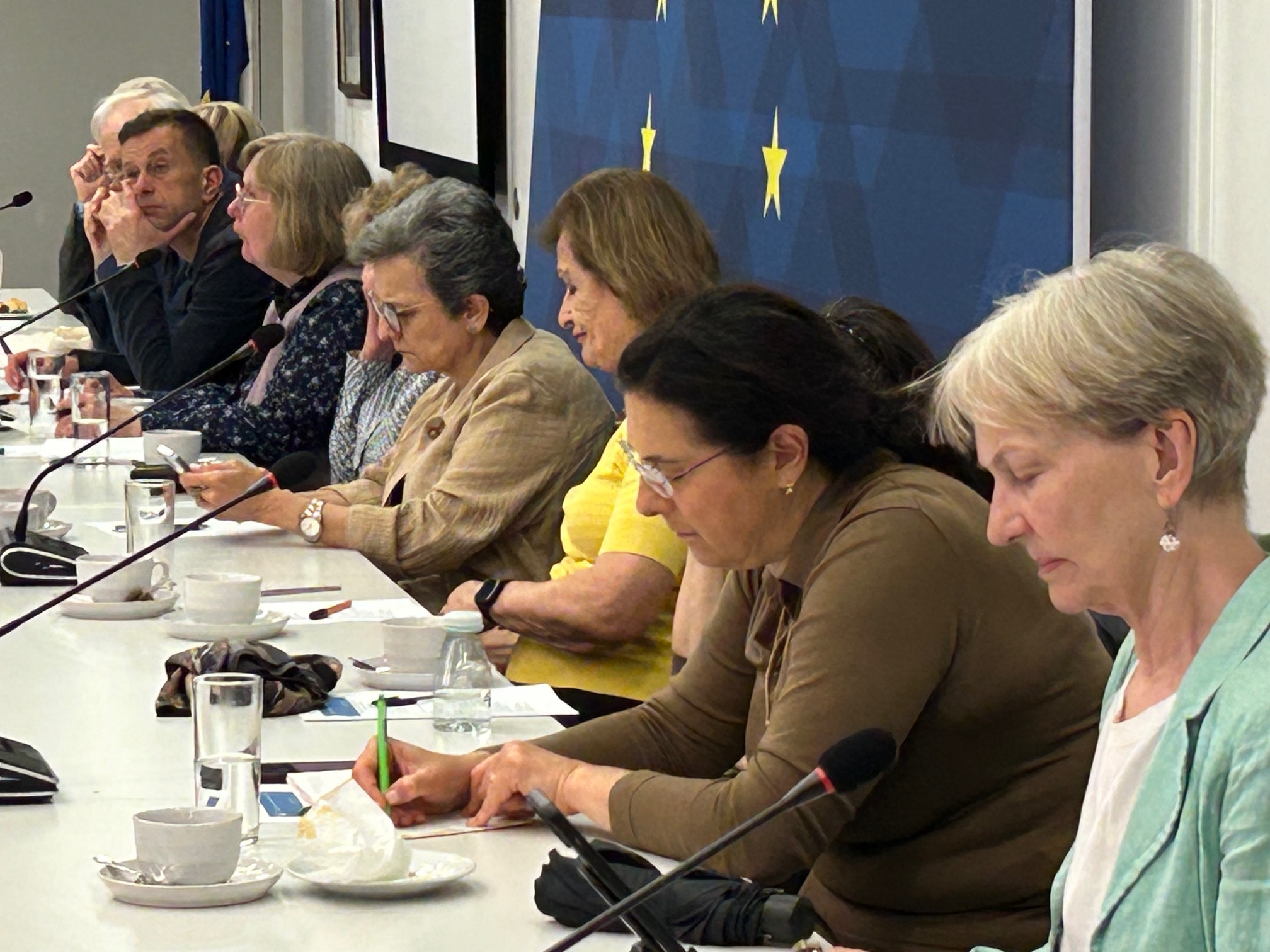
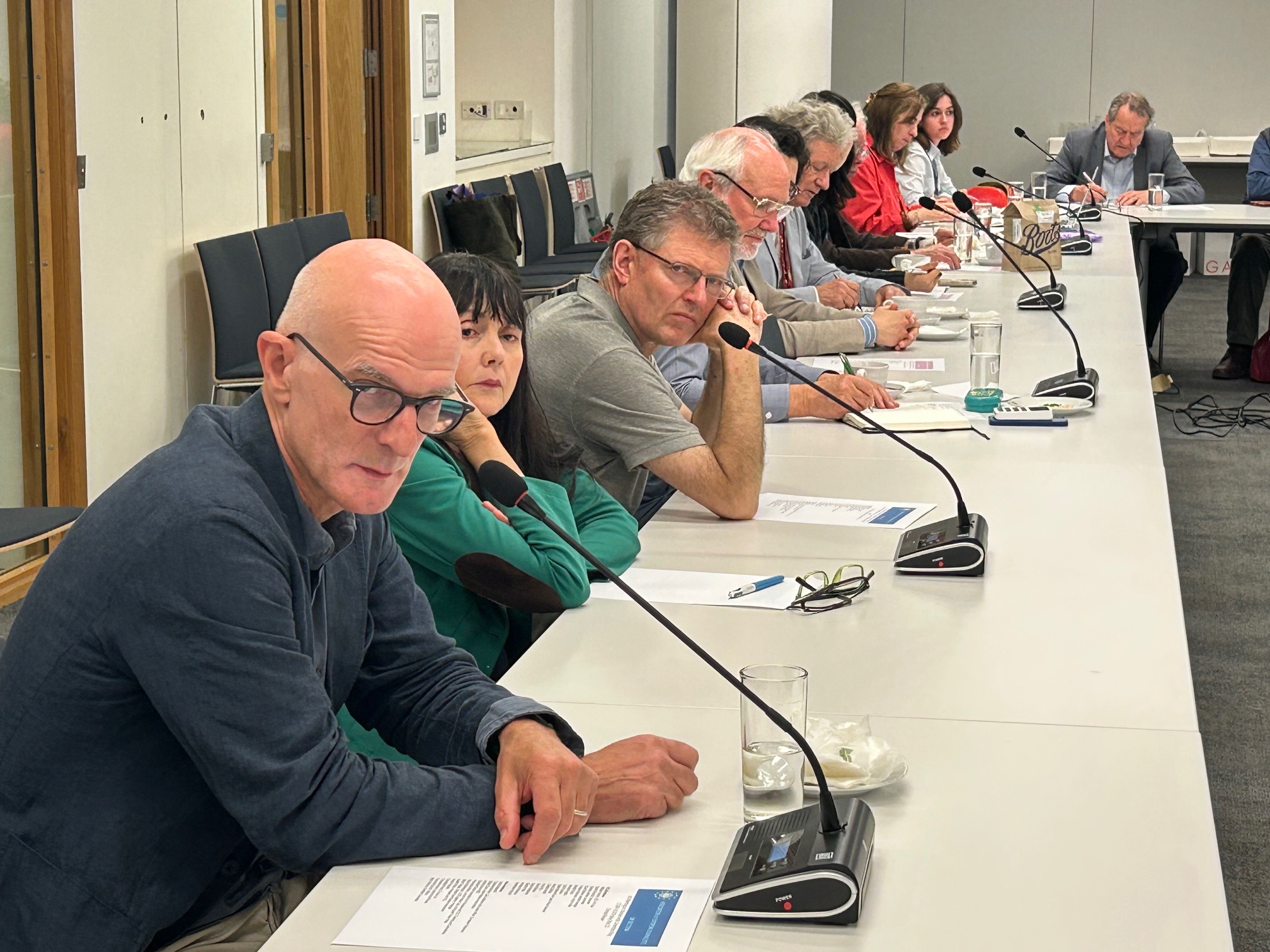
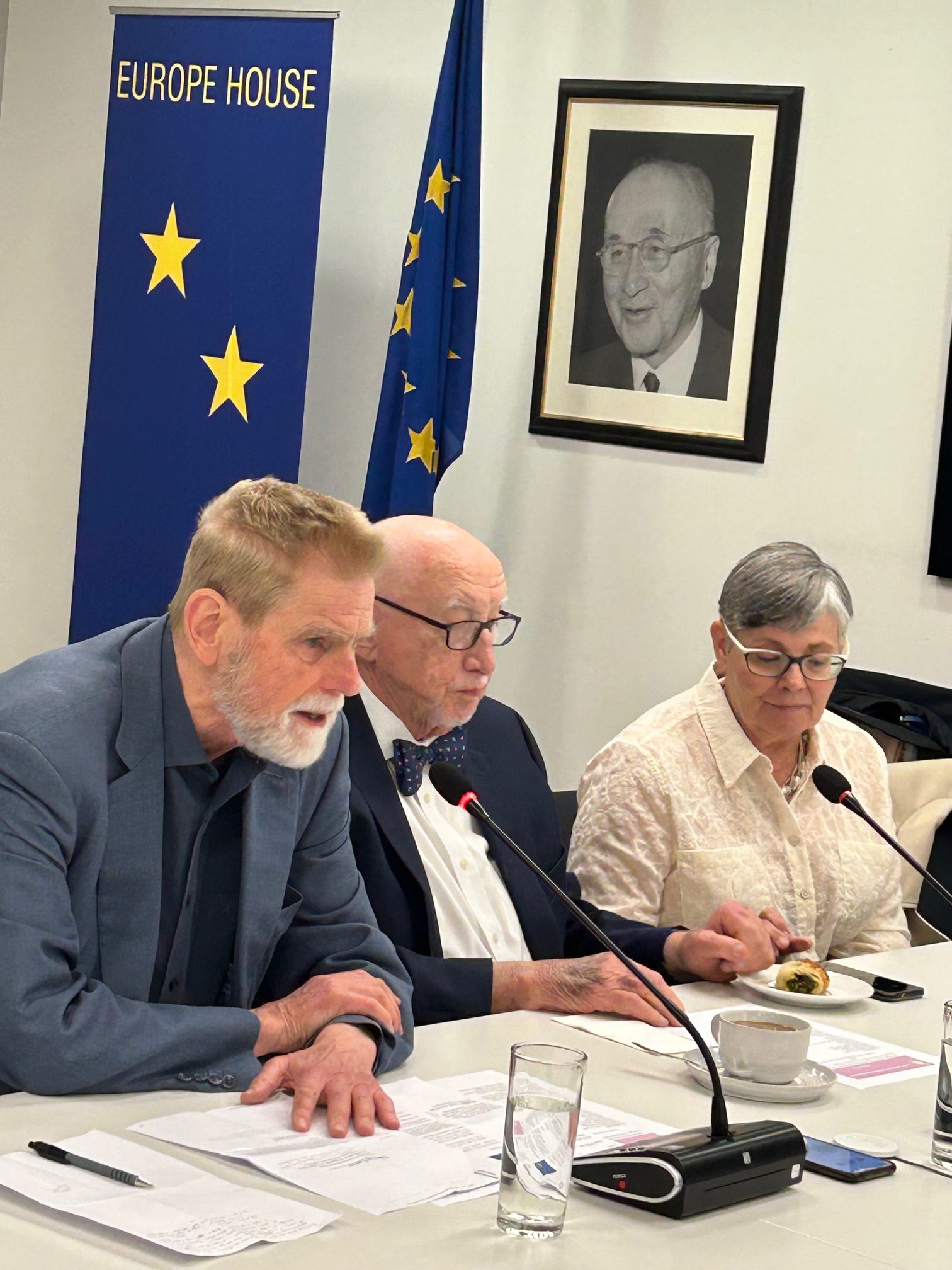
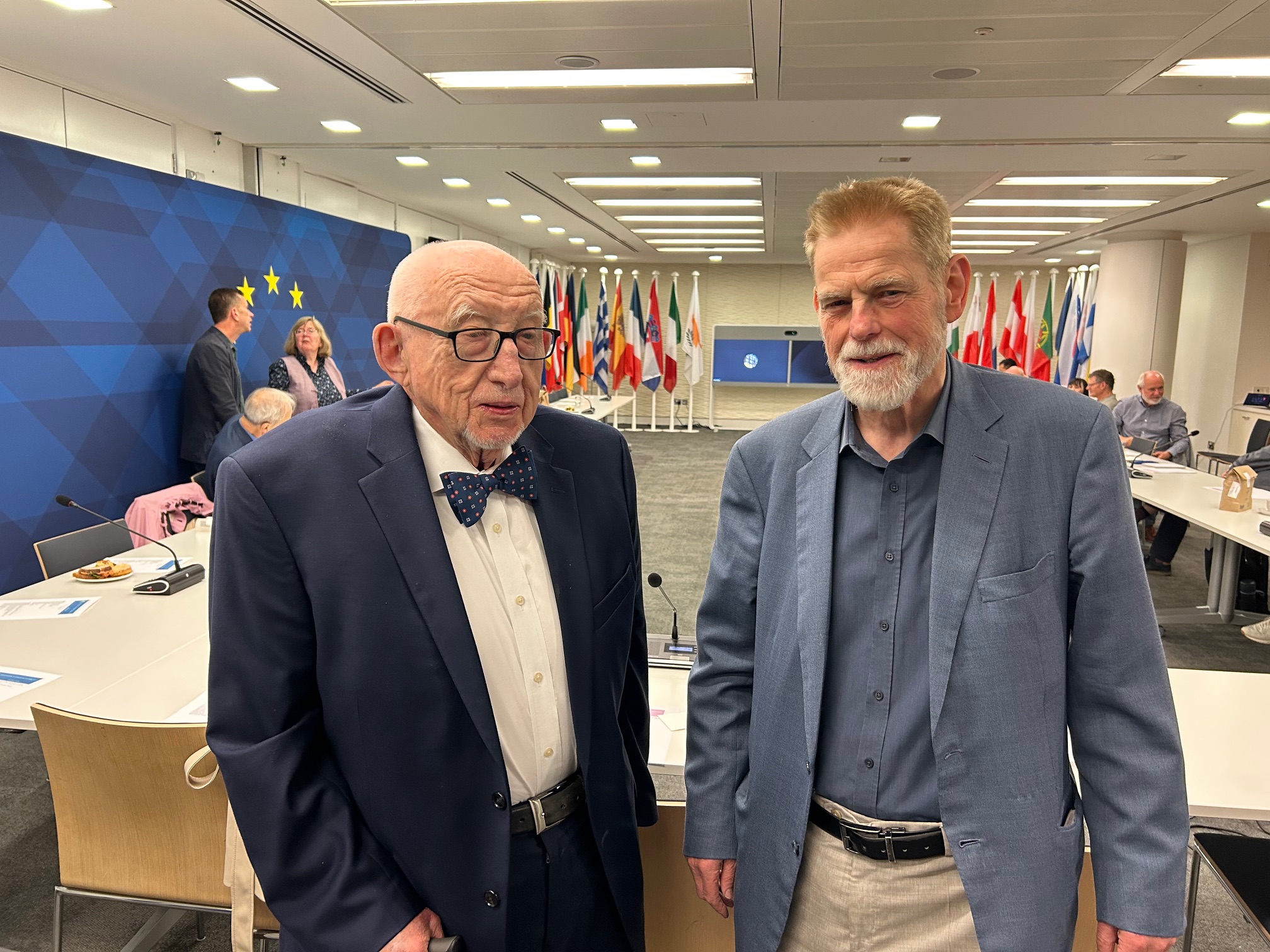
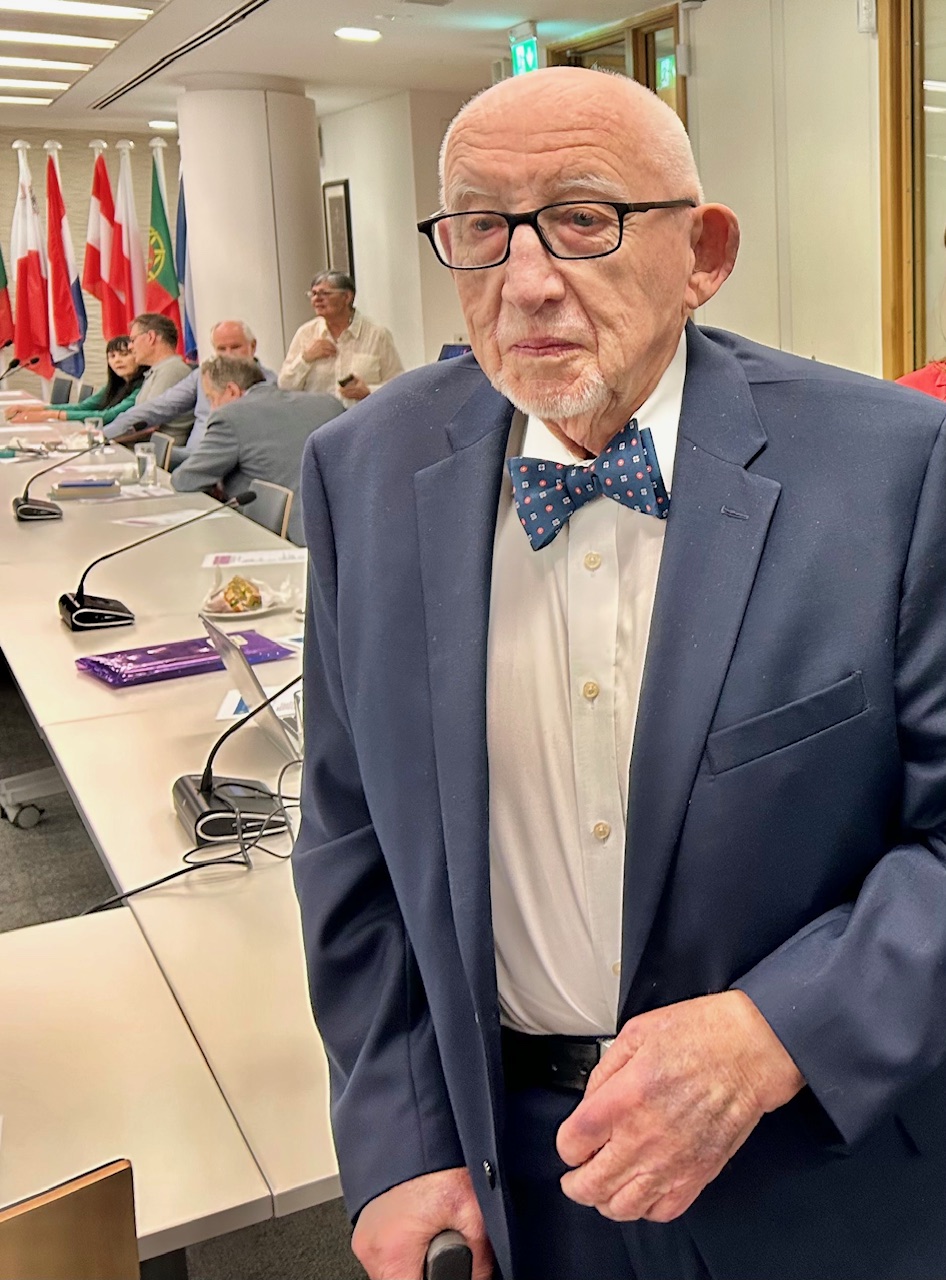
Original Article is HERE.


